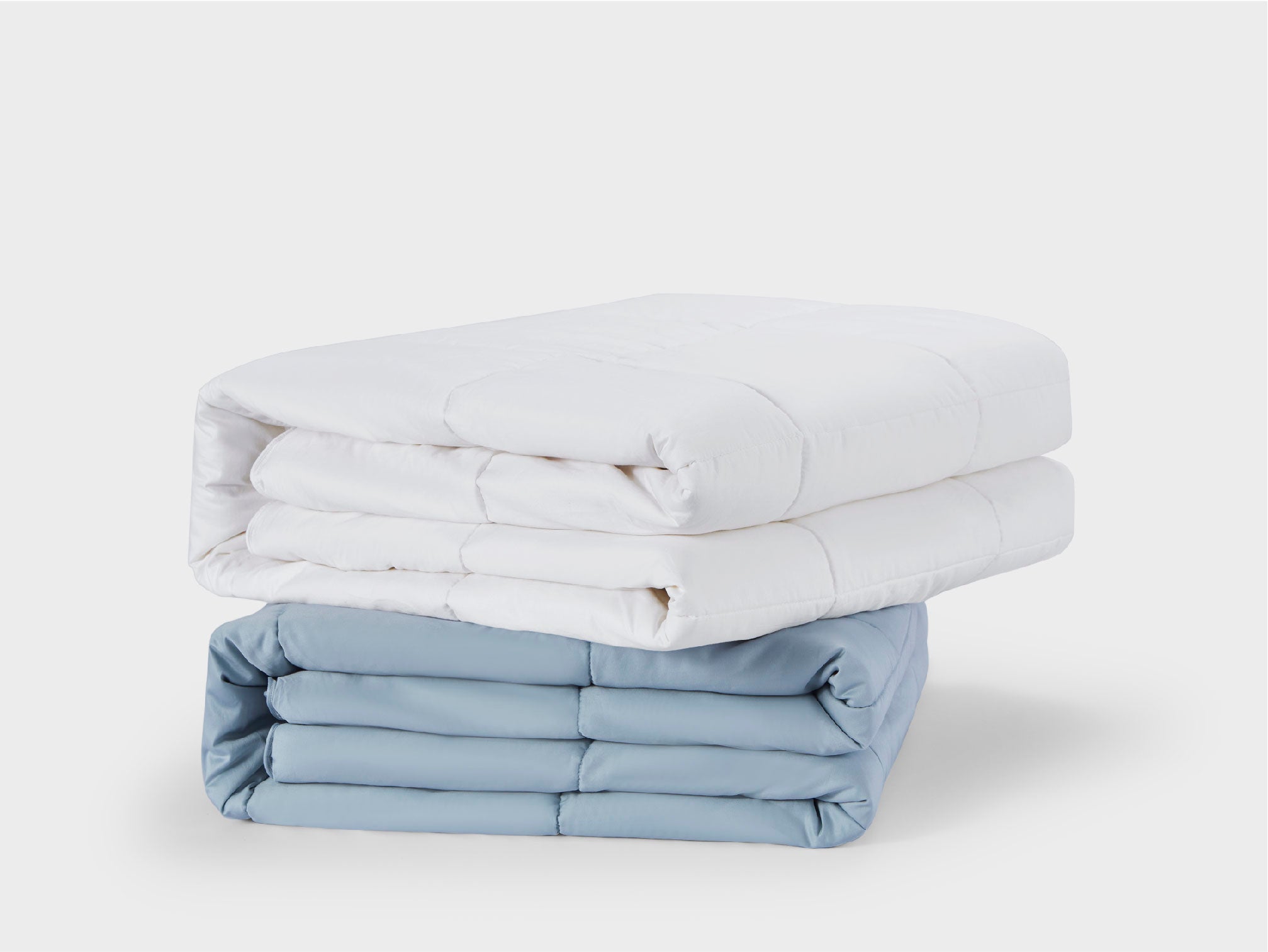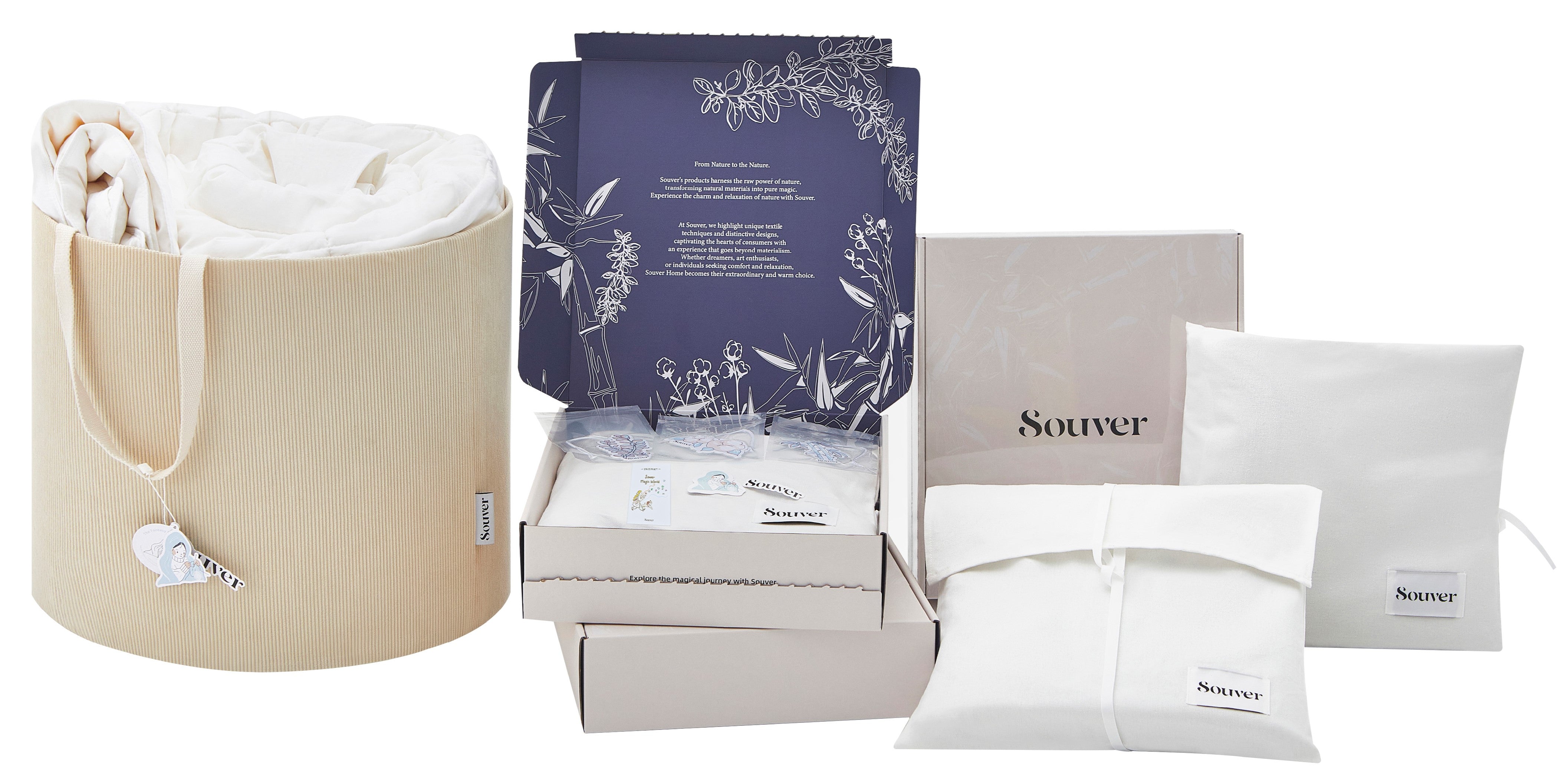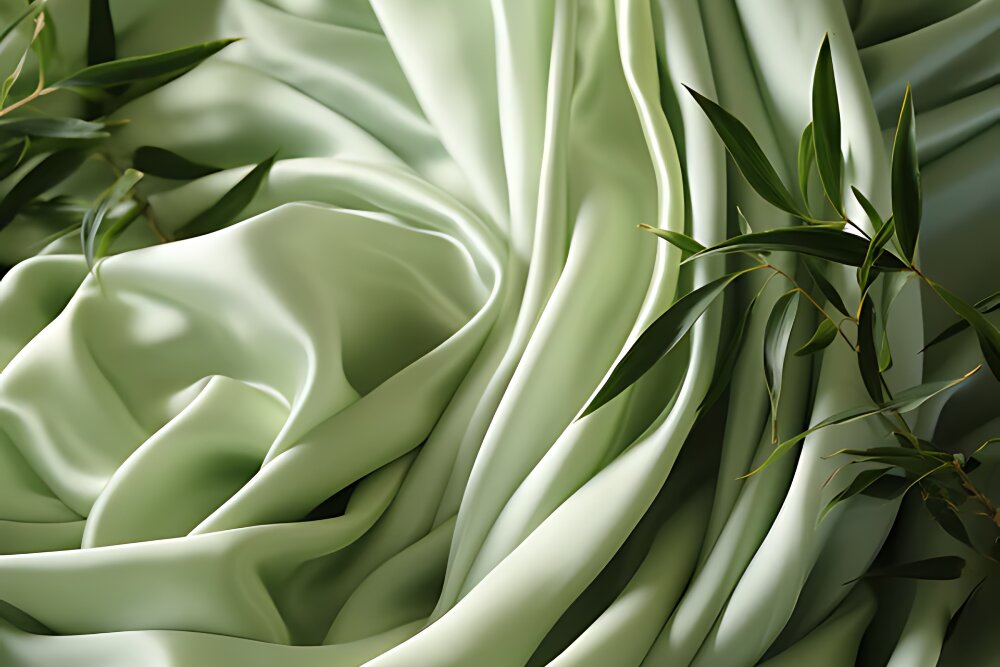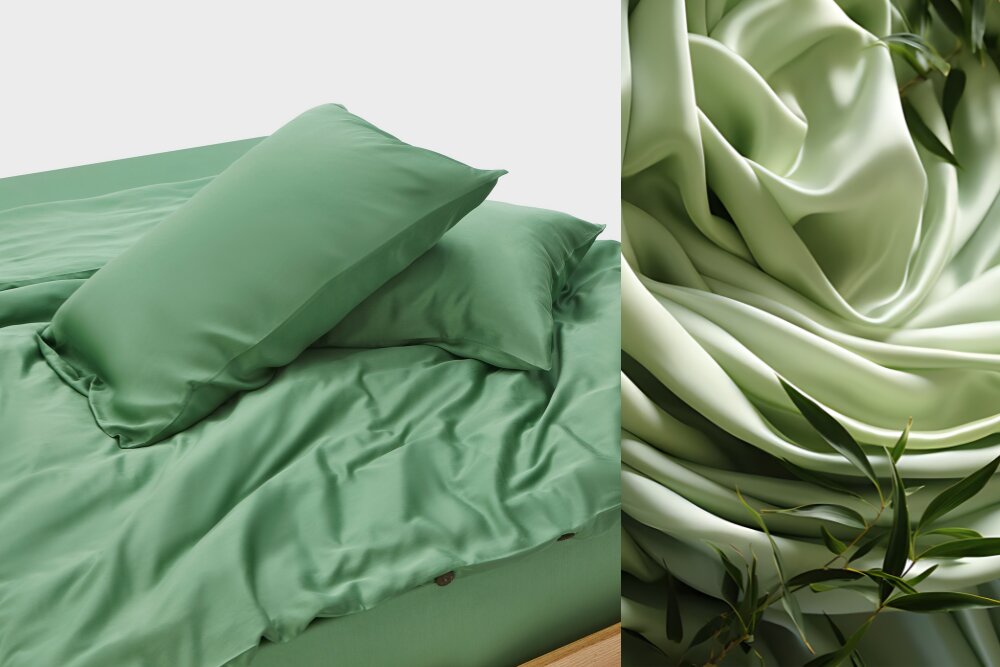When it comes to caring for sensitive skin, the choice of bedding has a lot to do with skin health. Fabrics in direct contact with the skin can alleviate or aggravate skin conditions.
Key properties that sheets for sensitive skin should have include breathability, softness, and hypoallergenicity. Additionally, moisture-wicking properties are important for keeping skin dry and preventing potential rashes or allergic reactions.
- Cotton Percale Sheets
- Lyocell sheets
- Bamboo Sheets
- Silk Sheets
Cotton Percale Sheets
When it comes to catering to sensitive skin, 100% cotton percale sheets are an excellent choice. The unique properties of cotton percale make it a favorable option for individuals with delicate skin.
Cotton percale stands out for its exceptional breathability and moisture control. These sheets allow air to circulate, preventing the build-up of moisture that can lead to skin irritation. The natural fibers of cotton also can wick away moisture, keeping the skin dry and comfortable throughout the night. This feature is particularly beneficial for those with sensitive skin, as it reduces the risk of rashes or discomfort.
Moreover, cotton percale sheets are known for their durability and ease of care. They can withstand frequent washing without losing their shape or softness, making them a practical choice for long-term use. These sheets are easy to maintain, requiring minimal effort to keep them clean and fresh.
Percale is a specific weave that uses a tight plain weave to provide a crisp, smooth, and tough texture. When choosing, make sure the sheet is labeled "Percale," which indicates its specific weave and feel. For Percale sheets, an ideal thread count range is between 200 and 400, which provides the best balance of breathability and comfort.
Lyocell Sheets for Sensitive Skin
Lyocell sheets are ideal for people with sensitive skin due to their excellent hypoallergenic and moisture-wicking properties. Not only does this fabric naturally repel common allergens, reducing the risk of skin irritation and allergic reactions, but its superior moisture-wicking capabilities also ensure users stay dry and comfortable all night long. Especially for people with sensitive skin, these properties of Lyocell sheets can minimize the possibility of rashes or discomfort, thereby promoting a more restful and comfortable sleep environment.
Lyocell sheet fiber is made from sustainable eucalyptus trees, which not only feels luxurious and smooth, is gentle and non-irritating to the skin, but also reflects its commitment to environmental protection. Therefore, Lyocell sheets are an attractive environmentally friendly option for consumers who want to protect the health of their skin while also focusing on sustainability and natural material choices.
Bamboo Sheets for Sensitive Skin

Bamboo sheets are renowned for their natural antibacterial and hypoallergenic qualities, making them a perfect option for individuals with sensitive skin. The natural properties of bamboo viscose inhibit the growth of bacteria, fungi, and other microorganisms, reducing the risk of skin irritation and allergic reactions. This makes bamboo sheets a gentle and soothing choice for those with delicate skin, promoting a peaceful sleep environment free from potential irritants.
Moreover, bamboo viscose sheets boast exceptional thermal regulating features. The fabric can adapt to the body's temperature, providing warmth in cooler conditions and coolness in warmer environments. This feature is particularly beneficial for individuals with sensitive skin, as it helps maintain a comfortable sleeping environment without causing overheating or excessive coldness, ultimately contributing to a restful night's sleep.
Silk Sheets
The uniqueness of silk sheets is the natural protein fibers they contain, which give silk its extraordinary softness and gentle touch. Not only do these natural proteins provide essential amino acids that help maintain the skin's natural moisture, thereby promoting hydration and preventing excessive dryness, but they also enhance the smoothness and softness of the silk itself, ensuring a gentle caress for the skin.
Silk sheets are especially beneficial for individuals with sensitive, dry, or aging skin. Its smooth texture minimizes friction on the skin while sleeping.
The production of silk involves a series of delicate steps, including raising silkworms, collecting silk, unwinding, and weaving, processes that are mostly done by hand and are time-consuming and labor-intensive. These properties make it ideal for luxury bedding.
In addition to its benefits for sensitive skin, silk sheets offer advantages for hair health and overall sleep quality. The smooth texture of silk reduces friction on hair strands, minimizing tangles and breakage while preserving hair's natural oils. Furthermore, the luxurious feel of silk against the skin promotes relaxation, contributing to a more restful night's sleep.
In addition to being good for sensitive skin, silk sheets are also great for hair health and overall sleep quality. Silk's smooth texture reduces friction on hair strands, minimizing tangles and breakage while retaining the hair's natural oils.
When looking for mulberry silk sheets, pay attention to the weight of the silk fabric; the higher the weight, the greater the durability and longevity.
Caring for Your Sensitive Skin Bed Sheets
After investing in high-quality bed sheets suitable for sensitive skin, it's essential to maintain their pristine condition through proper care and handling. Washing and drying tips are crucial to preserve the quality and integrity of the sheets, ensuring that they continue to provide a gentle and comfortable sleeping environment.
Washing and Drying Tips to Preserve Sheet Quality

When washing bed sheets for sensitive skin, opt for a mild, fragrance-free detergent to minimize the risk of skin irritation. Use cold or lukewarm water instead of hot water, as high temperatures can cause shrinkage and damage delicate fibers. Additionally, avoid using fabric softeners or harsh bleach, as these products can leave a residue that may affect the softness and hypoallergenic properties of the sheets.
After washing, tumble dry the sheets on a low-heat setting or air dry them to prevent excessive heat exposure. Excessive heat can compromise the integrity of the fabric and lead to shrinkage. It's also advisable to remove the sheets promptly from the dryer to minimize wrinkles and maintain their smooth texture.
Avoiding Common Irritants in Laundry Products
Steer clear of laundry products containing dyes, fragrances, or harsh chemicals when caring for bed sheets designed for sensitive skin. These additives can trigger allergic reactions or skin sensitivities, negating the benefits of using specialized sheets. Opt for detergents specifically formulated for sensitive skin or free from common irritants to ensure gentle care for both the sheets and the skin.
Conclusion
Sensitive skin types are more reactive to external stimuli, prone to redness, dryness, and tightness, and are particularly sensitive to seasonal changes and the ingredients of certain skin care products. Therefore, sheets that are soft, breathable, and have natural antibacterial properties can play a role in alleviating these issues.
The Cotton Sheets, Lyocell Sheets, and Bamboo Sheets we offer are each made from the highest quality sustainable materials and designed to provide maximum comfort and protection for sensitive skin,You can contact us if you need to.








留言
此網站已受到 hCaptcha 保護,且適用 hCaptcha 隱私政策以及服務條款。